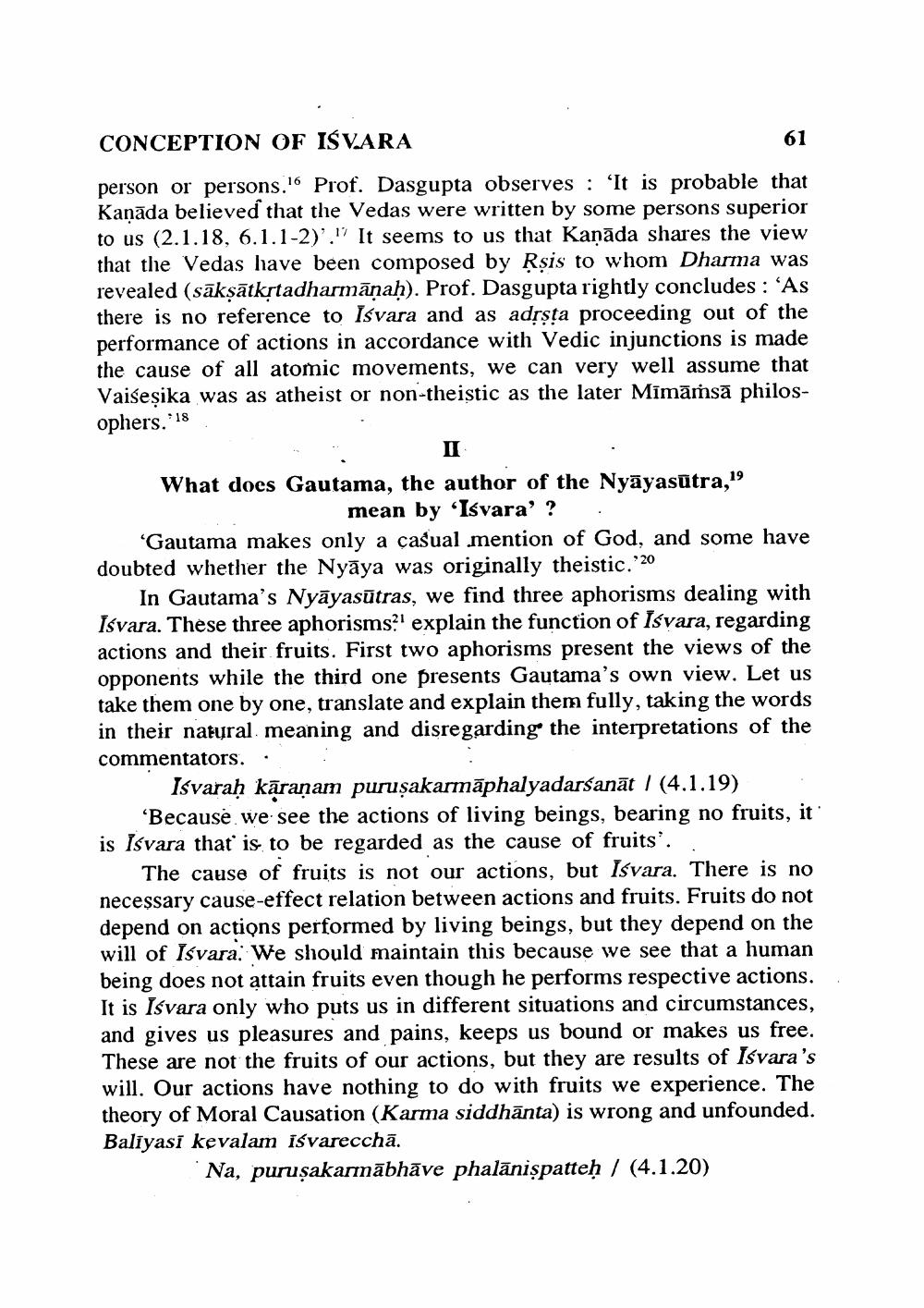________________
CONCEPTION OF ISVARA
61
person or persons.16 Prof. Dasgupta observes : 'It is probable that Kaņāda believed that the Vedas were written by some persons superior to us (2.1.18, 6.1.1-2)'." It seems to us that Kanāda shares the view that the Vedas have been composed by Rsis to whom Dharma was revealed (sākṣātkrtadharmānah). Prof. Dasgupta rightly concludes: 'As there is no reference to Isvara and as adrsta proceeding out of the performance of actions in accordance with Vedic injunctions is made the cause of all atomic movements, we can very well assume that Vaiseșika was as atheist or non-theistic as the later Mīmāṁsā philosophers. *18
What does Gautama, the author of the Nyāyasūtra,19
mean by 'Isvara' ? 'Gautama makes only a casual mention of God, and some have doubted whether the Nyāya was originally theistic.'20
In Gautama's Nyāyasūtras, we find three aphorisms dealing with Isvara. These three aphorisms?' explain the function of Isvara, regarding actions and their fruits. First two aphorisms present the views of the opponents while the third one presents Gautama's own view. Let us take them one by one, translate and explain them fully, taking the words in their natural meaning and disregarding the interpretations of the commentators..
Isvaraḥ kāraṇam puruşakarmāphalyadarśanāt / (4.1.19) ‘Because we see the actions of living beings, bearing no fruits, it is Isvara that is to be regarded as the cause of fruits'..
The cause of fruits is not our actions, but Isvara. There is no necessary cause-effect relation between actions and fruits. Fruits do not depend on actions performed by living beings, but they depend on the will of Isvara. We should maintain this because we see that a human being does not attain fruits even though he performs respective actions. It is Isvara only who puts us in different situations and circumstances, and gives us pleasures and pains, keeps us bound or makes us free. These are not the fruits of our actions, but they are results of Isvara's will. Our actions have nothing to do with fruits we experience. The theory of Moral Causation (Karma siddhānta) is wrong and unfounded. Baliyasi kevalam iśvarecchā.
'Na, puruşakarmābhāve phalānispatteḥ / (4.1.20)




